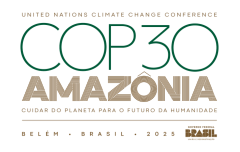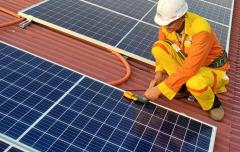COP23 Energy Day - State of Play
OVERALL NARRATIVE
To achieve a sustainable future, inclusive clean energy transitions are urgently needed. The Paris Agreement highlights the need for long-term planning, while recognizing how all stakeholders must act today to accelerate energy transformation with ambitious strategies, enabling policies and a holistic approach to reap multiple benefits for all.
Energy Day at COP23 will tell the story of the ongoing energy transformation, showcase success stories, take stock of commitments made, and offer recommendations on the way forward. Participants will share their visions for the future of energy; companies will describe why they are going 100 percent renewable, leaders of energy efficiency initiatives will demonstrate the business case for their work; state, region and city leaders will discuss ambitious climate and clean energy policies; and industry leaders will showcase innovation and breakthroughs in their fields. Speakers will also identify obstacles and challenges, and the means to overcome them.
CONTEXT
2017 marks significant progress on sustainable energy. We have now seen three consecutive years of flat carbon emissions and reduced demand for coal. Prices for solar and wind energy, and the costs of batteries continue to fall. And there have been important developments in the design and deployment of electric vehicles. These trends are further reinforced by commitments at the
country and city-level to transition towards a decarbonized future that support access to sustainable energy services that are essential for growth and development, for all.
However, we still face challenges in paving the way for a sustainable energy future for all. The build out of energy efficiency measures in all end-use sectors, particularly where emissions are hard-to- abate sectors such as heavy industries, will be a prerequisite for a low carbon transition. Deploying renewable energy for heating and cooling applications is the next frontier.
There are countries that are leading but face challenges in meeting development and climate goals. For example, the Small Island States that rely on diesel for 95-99 percent of their electricity generation needs and thus face electricity prices that are typically 3-4 times higher than in North America and Europe. And Least Developed Countries (LDCs) that face challenges in providing universal access to electricity and clean cooking–which needs integrated policies that allow grid based and decentralized energy services to scale and reach remote and vulnerable communities sooner–but have ambitions to do this through clean and efficient solutions. Leaving no one behind requires greater focus on gender responsive and socially inclusive approaches to sustainable energy planning, design and delivery.
OBJECTIVES
- Every country, city and sector will approach this transition with unique issues and at a pace and scale that is tailored to their local context. This opening session on Energy Day will provide a forum for countries and sectors leading on these issues to discuss the challenges, needs and opportunities they face in this transition from an energy system dominated by the unabated use of fossil-fuels to one that is efficient, resilient, future-proof and accessible to everyone.
- Facilitate a discussion on hard-to-address and challenging issues that are the backdrop to the energy transition, and opportunity to give voice to (unmet) support needs and action pathways. Frame the discussion in the context of the Paris Agreement and broader objectives of the Sustainable Development Agenda. Highlight areas needing prioritized attention at the country or sectoral level.
SESSION STRUCTURE
- This will be a dynamic 75-minute, high-level conversation between leaders committed to the Energy Transition and with the audience.
- Senator Jeff Merkley (OR) closes out the session and delivers a 10-15 minute “visionary statement”.
MODERATOR & SPEAKERS
Opening Remarks and Moderator:
- Mr. STEPHEN KUKODA, Executive Director, The International Copper Association
SPEAKERS
- Mr. AGUSTIN DELGADO, Director of Innovation, Environment and Quality, Iberdrola
- Mr. RAM PRASAD DHITAL, Executive Director of Alternative Energy Promotions Centre, Nepal
- Mr. DAVID HONE, Chief Climate Change Advisor, Shell
- Mr. SELLO MPHAGA, Executive Director & Chief Sustainability Specialist, City of Tshwane, Metropolitan Municipality of Pretoria, South Africa
- Ms. ANDREA REIMER, Councillor, Vancouver City Council, Canada
Special Address:
- JEFF MERKLEY, Senator, State of Oregon, United States
RUNNING ORDER
| 9:50 | - | 10:02 | Speakers assemble on stage |
| 10:02 | - | 10:15 | Stephen Kukoda provides opening remarks and introduces panelists |
| 10:15 | - | 11:13 | Stephen Kukoda leads a dialogue with panelists |
| 11:13 | - | 11:15 | Senator Merkley gets on stage |
| 11:15 | - | 11:29 | Senator Merkley delivers a “visionary statement” |
| 11:29 | - | 11:30 | Stephen Kukoda concludes |
[Hard finish at 11:30pm]
QUESTIONS FOR PANEL DISCUSSION
Mr. AGUSTIN DELGADO - The Utility Perspective, Renewable Integration
- Last year saw another record of renewable energy deployment. Renewables represented almost two-thirds of new net electricity capacity additions worldwide, with almost 165 GW coming online. The IEA projects the global renewable electricity capacity to expand by over 920 GW by 2022, equivalent to half of the coal power capacity installed worldwide. How is Iberdrola adapting to this fast- paced environment? What do you see as the key challenges and opportunities?
- Iberdrola defines itself as a “Utility of the Future”. Could you describe what a utility of the future looks like? What would you say to other utilities that are considering a similar approach?
- How can power utilities adapt to, and take advantage of, the digital transformation to accelerate the electrification of energy use and the deployment of efficient appliances?
Mr. RAM PRASAD DHITAL - The Least Developed Country Perspective, Off-grid Electricity Access
- Nepal is one of the most vulnerable countries to climate change and 7 million people and almost a quarter of the country’s population, located in remote rural areas, still lack access to electricity. How is Nepal approaching these issues and what impact does this have on Nepal’s long-term energy plans?
The SEforALL Energizing Finance report series suggests that roughly 1 percent of total trackable finance supported for decentralized electricity solutions between 2013 and 2014. $7.2 billion were invested in electricity services for those that lack energy in the Least Developed Countries. In your view, what are the keys to unlock energy finance in the Least Developed Countries? Are there policy and regulatory changes that could help finance to flow? Which partnership configurations would be most helpful to support such an energy transition?
Remark: Mr. Dhital has to leave the panel at 11:15.
Mr. DAVID HONE - The Fossil Fuel Industry Perspective
- The transport sector is witnessing a rapid transformation: Recently, multiple national and city-level initiatives, including from emerging economies, announced a shift towards emission-free mobility within 10 or 15 years; car manufacturers are now shifting their value proposition towards electric vehicles. How is Shell adapting its strategy to an environment where demand for oil products is set to level off?
- A transition towards low-carbon systems is vital to meet the Paris Agreement objectives. What are the solutions for hard-to-abate sectors such as freight or chemical processes? What are the conditions needed for oil and gas suppliers to most effectively be part of this transition?
Mr. SELLO MPHAGA - The Local Government Perspective, Efficiency, Sustainable Mobility
- Mr Mphaga, you see the energy revolution as a great development opportunity for your city, Tshwane. This year, you are looking to attract R10.8 billion in investments, or about $750 million, to make your municipality a green economy role-model. Which transformative initiatives are you supporting? How do you set priorities between sustainable mobility, energy efficiency and renewable energy supplies such as biogas?
- The City of Tshwane is a signatory of the Compact of Mayors and is a member of the C40 Climate Leadership Group. What lessons or solutions are emerging from the C40 regarding the energy transition? What role do you see for the C40 Group in support of NDCs?
Ms. ANDREA REIMER – The Local Government Perspective, Efficiency, Sustainable Mobility
- Ms. Reimer, your “Greenest City Action Plan” aims to make Vancouver the “Greenest City on Earth”. What are the fundamental areas of focus and the key goals of your Plan?
- You are following a phased approach to reducing greenhouse gas emissions, which builds upon your Zero Emissions Building Plan, the result of a multi-stakeholder consultation. Who took part to this consultation? How do you coordinate public and private actions to roll out your Action Plan and achieve your energy transition?
SPEAKER BIOGRAPHIES
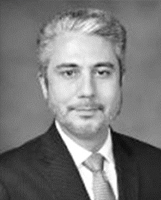
MODERATOR and OPENING REMARKS
Mr. STEPHEN KUKODA, Executive Director, International Copper Association
Steve Kukoda joined the International Copper Association (ICA) in 2004 and is now its Vice President. In 2013 ICA formed, together with other like-minded organizations, including the United Nations Environment Program and the United Nations Development Program, the public-private partnership United For Efficiency (U4E). U4E goals are to reduce global electricity consumption by 10 percent and to reduce CO2 emissions equivalent to half of the world’s cars. U4E is the Energy Efficiency SEforALL Appliance and Equipment Accelerator.
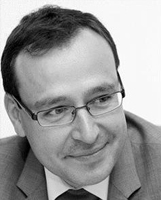
Mr. AGUSTIN DELGADO, Director of Innovation, Environment and Quality, Iberdrola Agustín
Delgado is responsible for developing processes of R&D management, the knowledge management system, the coordination of systems and environmental and quality initiatives across all business units of Iberdrola, and the venture capital program PERSEO, where he coordinates investment in technology companies related to energy sustainability. Previously he was Director of Technology Innovation Group. Prior to his arrival in Iberdrola he was responsible for the R&D department of a small company working on hydrogen generation and usage through fuel cells and he was a Director in Gamesa. Agustín holds an Industrial Engineering Degree and a PhD in Industrial Engineering.

RAM PRASAD DHITAL, Director, Alternative Energy Promotion Centre, Ministry of Population and Environment, Nepal
Ram Prasad Dhital is the Executive Director at Alternative Energy Promotion Centre under Ministry of Population and Environment in Nepal. He is an expert in renewable energy development with over 18 years of experience in ensuring efficient and effective implementation of off grid energy projects. Ram started his career with UNDP in the Rural Energy Development program in Nepal, as Renewable Energy Expert in Afghanistan, then as Rural Energy Technical Advisor supporting Vanuatu Energy for Rural Development Program. Ram has a master’s degree in Renewable Energy.
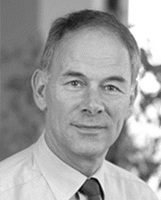
Mr. DAVID HONE, Chief Climate Change Advisor, Shell
David Hone works in Shell as Chief Climate Change Advisor since 2001, is a Board Member and former Chair for the International Emissions Trading Association (IETA) and Washington based think-tank C2ES. He works closely with the World Business Council for Sustainable Development, contributing to several of its publications, has a weekly blog on climate change issues and published two books on carbon pricing. He has always worked in the energy sector and have had a long-term interest in environmental issues. Graduated as a chemical engineer, David started working as a refinery engineer in Australia when very high oil prices made energy efficiency paramount, moving then to the Netherlands and to London, where he joined Shell as oil trader.
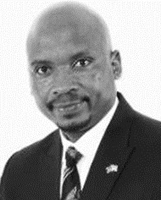
Mr. SELLO MPHAGA, Executive Director & Chief Sustainability Specialist, City of Tshwane, Metropolitan Municipality of Pretoria, South Africa
Sello Mphaga is a South African politician and the head of the Sustainability Unit of the City of Tshwane, in the Metropolitan Municipality of Pretoria, since 2014. Working in close collaboration with the Mayor, Solly Msimanga, Sello spearheads the city’s drive for renewable and sustainable energy, starting with the municipality’s own buildings and spanning to initiatives, such as waste management programmes, compressed-natural- gas-powered buses and solar harvesting farms.

Ms. ANDREA REIMER, Councillor, Vancouver City Council, Canada
Inspired by Mayor Gregor Robertson's leadership to join Vision Vancouver, Councillor Reimer was first elected to Vancouver City Council in 2008, and re- elected in 2011 and 2014. In her original campaign for City Council, Councillor Reimer made commitment to make Vancouver become the greenest city on Earth. She supported the creation of a carbon tax by the British Columbia Provincial Government. In 2007, she delivered the Inconvenient Truth presentation to local audiences and previously she had served as a School Board member with the Green Party from 2002–2005.
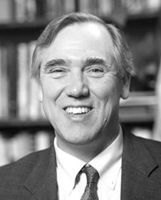
SPECIAL ADDRESS
JEFF MERKLEY, Senator, State of Oregon, United States
Jeffrey Alan Merkley is the junior United States Senator from Oregon. A member of the Democratic Party, Merkley was a five-term member of the Oregon House of Representatives, where he also served as Speaker. Throughout his tenure, Merkley has become a progressive voice in the U.S. Senate, and was the only U.S. Senator to endorse Bernie Sanders in the 2016 Democratic Presidential Primaries. Merkley has consistently supported policies to promote American energy independence and investment in alternative energy sources. In April 2017, he introduced together with Senator Bernie Sanders the “100 by ’50 Act”, the first bill presented to the Congress that fully envisions a transition for the United States off of fossil fuels to 100% clean and renewable energy for all by no later than 2050. Previously he had supported increasing national fuel economy standards, improving vehicles mileage standards, and electric vehicles, for which he introduced in 2011 the “Promoting Electric Vehicles Act”. Jeff serves on the Senate Committees on Appropriations; Environment and Public Works; Budget; and Foreign Affairs.
